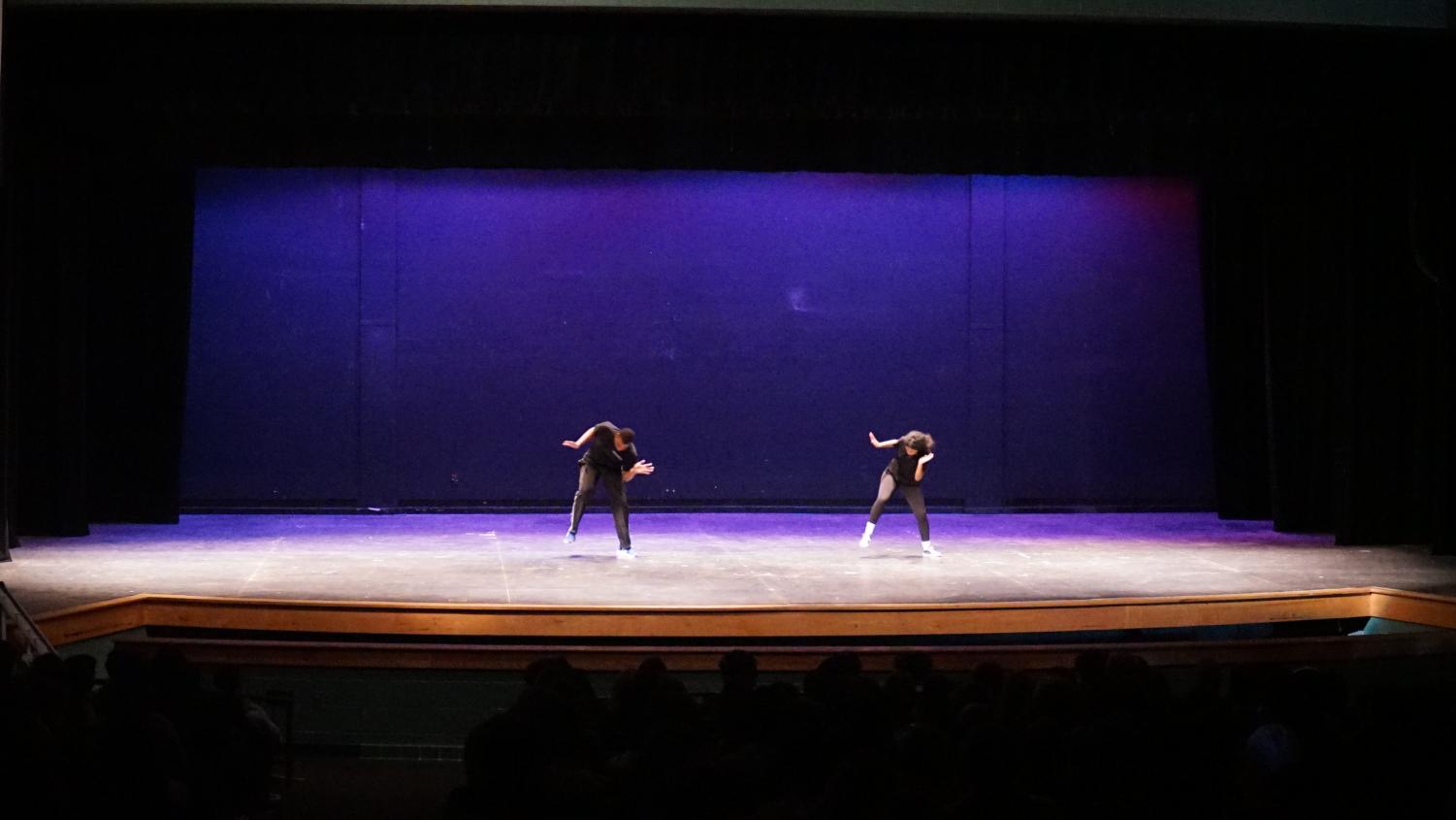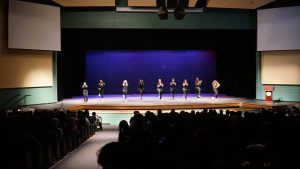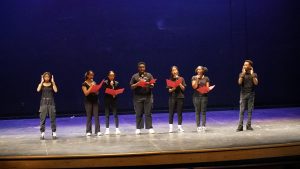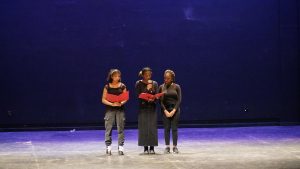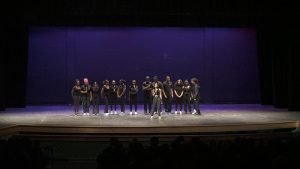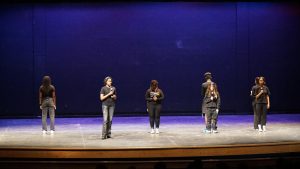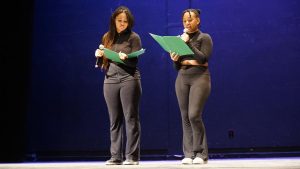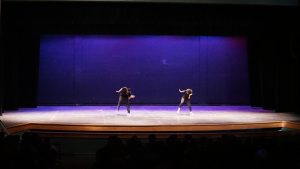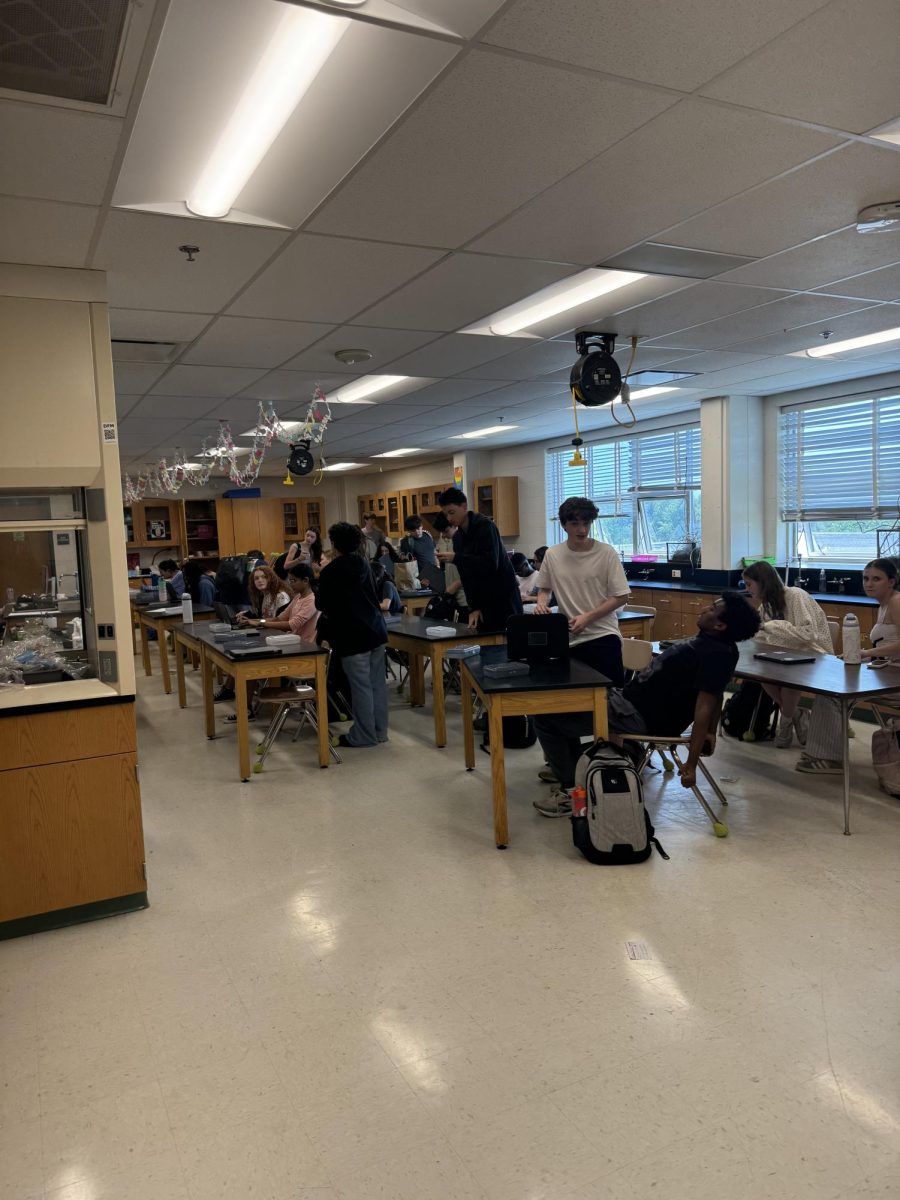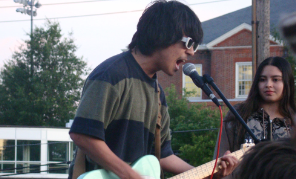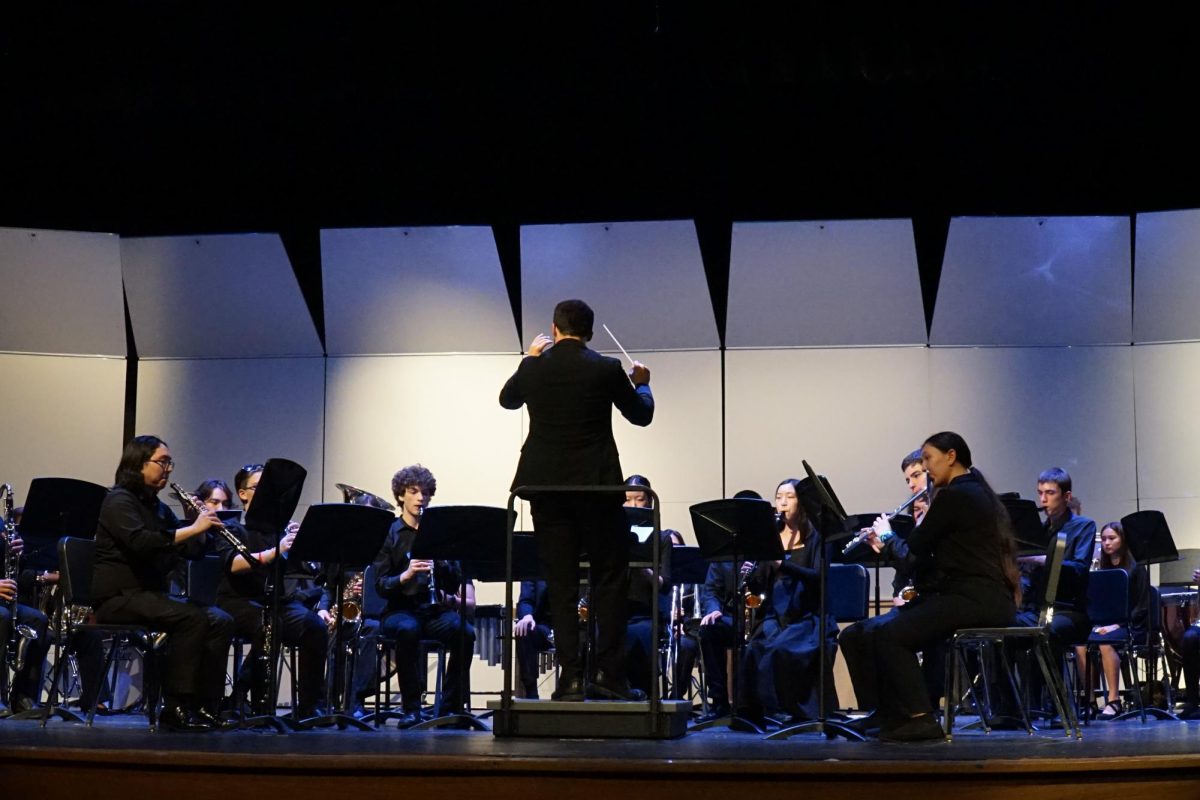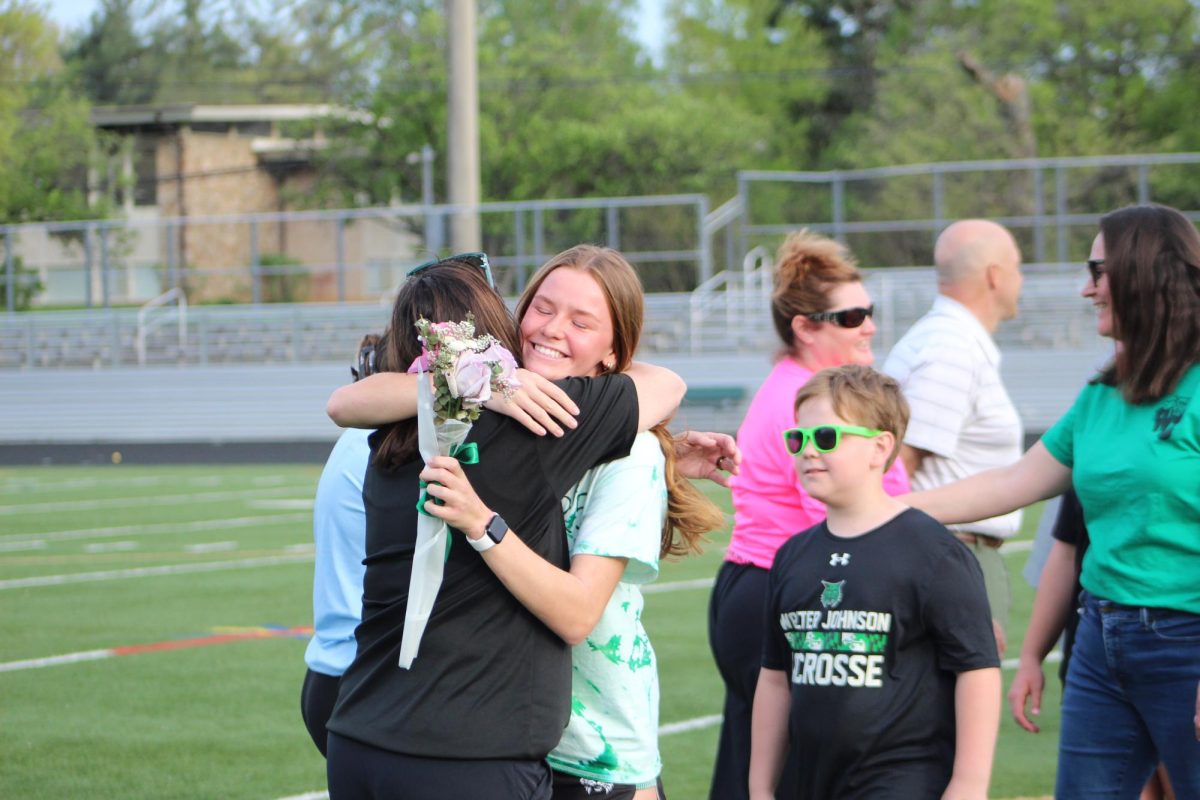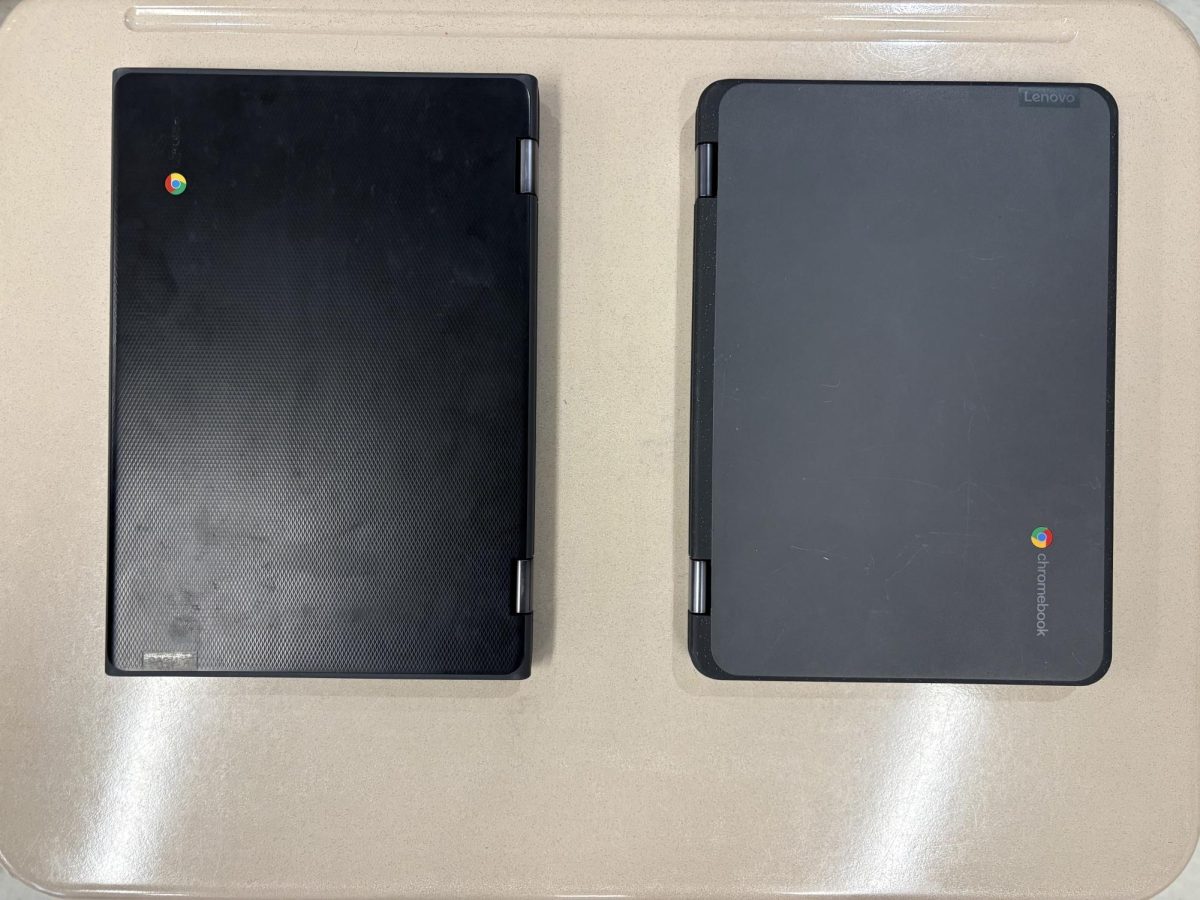On Feb. 24, the Black Student Union (BSU) put on a special assembly recognizing the works of many talented Black students in the WJ community in an effort to reflect their pride and importance of Black History Month. Members of BSU performed spiritual dances, spoken word poetry, sang songs and described key figures of the Civil Rights Movement in the early and mid 1900s, making the assembly truly a performance to remember.
BSU vice president Kyla Johnson and president Jalen Scott briefly announced each upcoming presentation, excited to engage the WJ student body and staff after many weeks of hard preparation.
To kick off the assembly, members of the step-team entered the auditorium while an opening song played, immediately grabbing the attention of the audience. They made their way to the stage and enacted a unique, choreographed ensemble, ending in many cheers and applause on behalf of the viewers.
Following the two dances, the Black National Anthem, “Lift Every Voice And Sing,” written by James Weldon Johnson, was performed by a group of BSU members. Along with the singers, there were two ASL interpreters on stage–something many were surprised but delighted to see included, as such a consideration is becoming a more modernized inclusion around the globe.
After that, members made a presentation of important Harlem Renaissance figures who shaped the way for music, literature, culture and art. With images and in-depth descriptions, BSU made sure the audience was leaving with an impactful and lasting understanding of significant cultural movements revolutionized by Black people.
Up next, BSU singers took the stage and sang “Stand Up” by Cynthia Erivo and among them freshman Soahanitra Mya Andriamalala led the song with her captivating voice. The performance ended with the audience cheering, singing, clapping and raising their flashlights in support and appreciation of the talented group.
Towards the end of the assembly, members reflected on the important pupils who paved the way for the Civil Rights Movement. Key figures like Rosa Parks, Claudette Colvin, the National Association for the Advancement of Colored People (NAACP) and the Black Panther Party of Self Defense (BPP) were brought to light as important people and organizations that shaped history and broke barriers for the Black population.
Johnson and BSU treasurer Olivia Profit then read aloud spoken-word poet Serenity Rush’s “Can You Hear Us Now?” The moving piece was a crowd favorite, as Johnson and Profit left the stage in a trail of applause, welcoming the last two performers, freshman Clifford Hubbard and sophomore Yibela Gebretsadik. Hubbard and Gebretsadik performed a spiritual dance to close off the assembly, sending the students back to their third periods with a thrilling experience and historic facts to remember.









